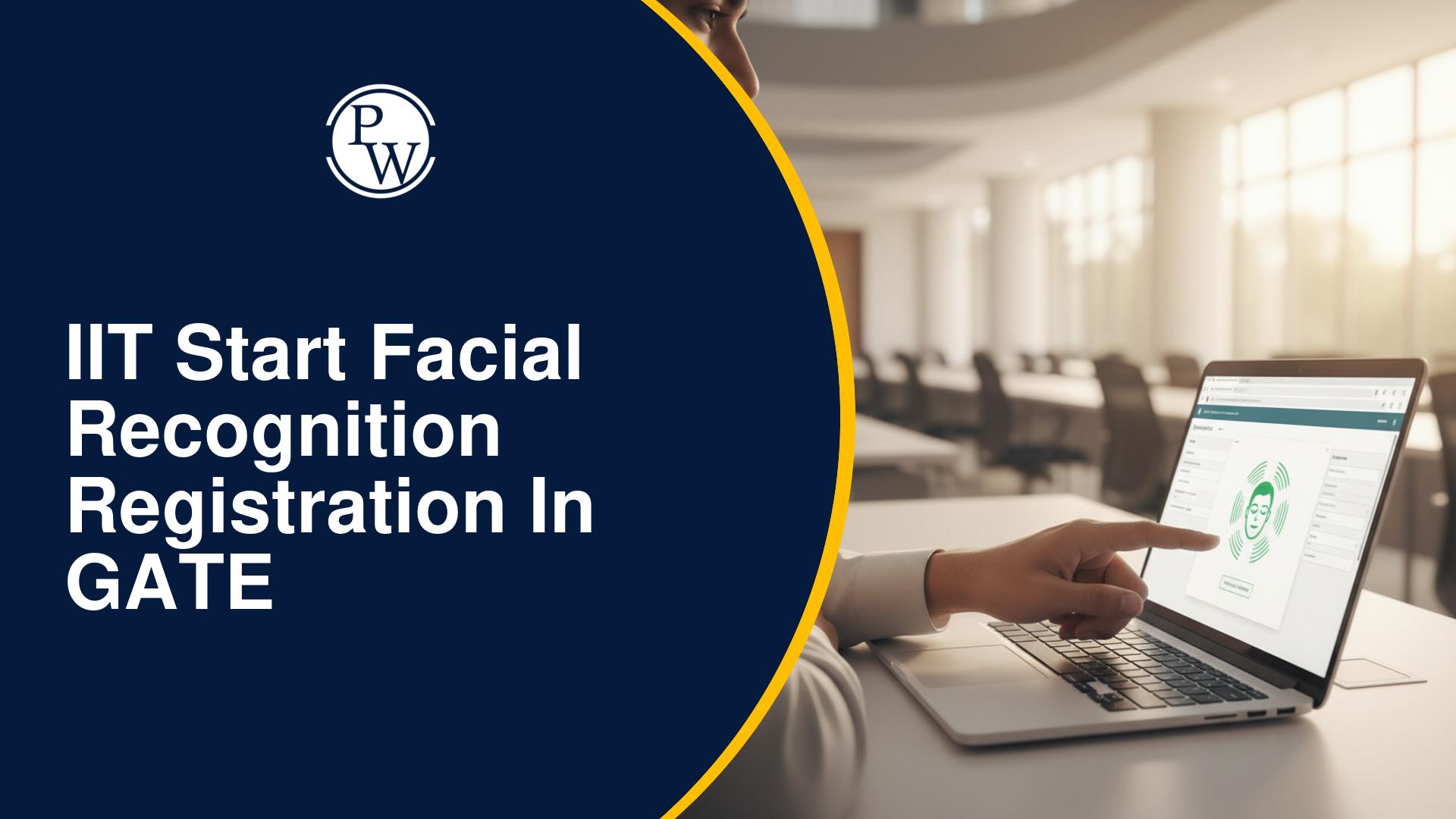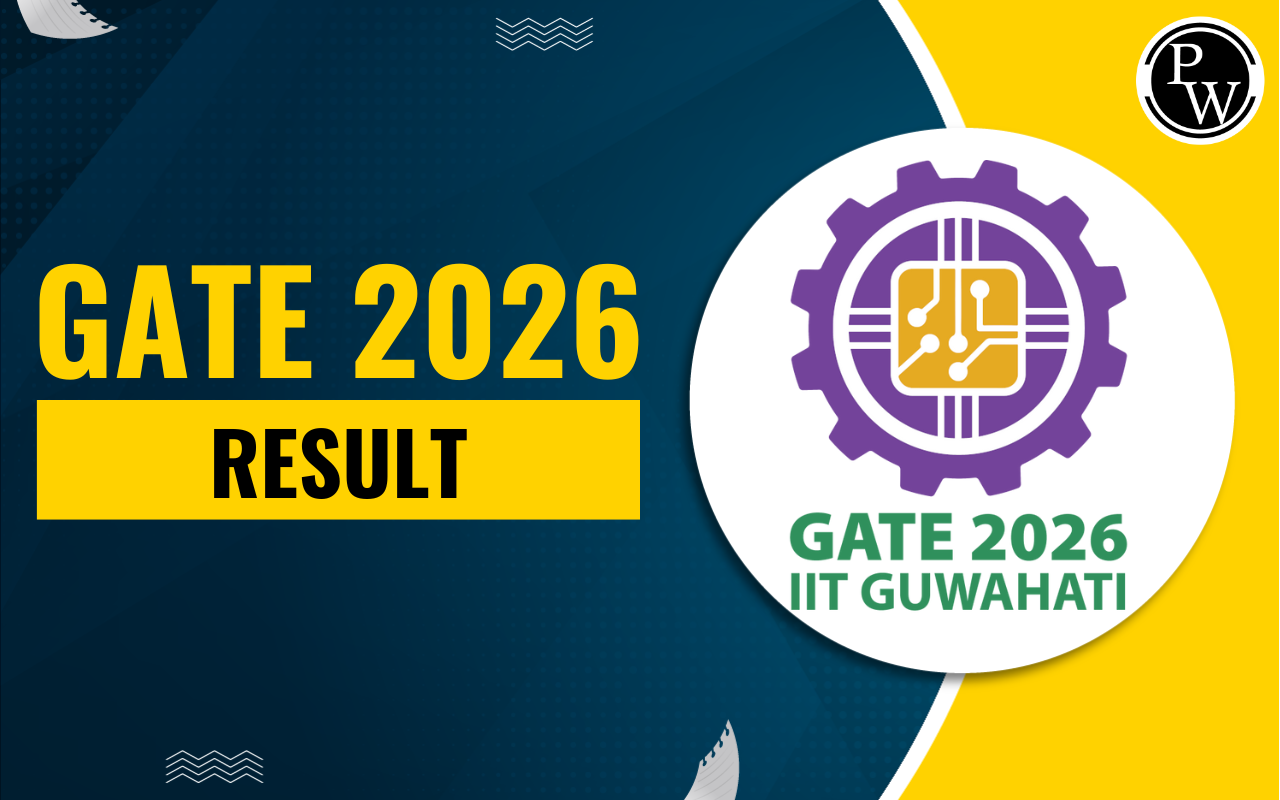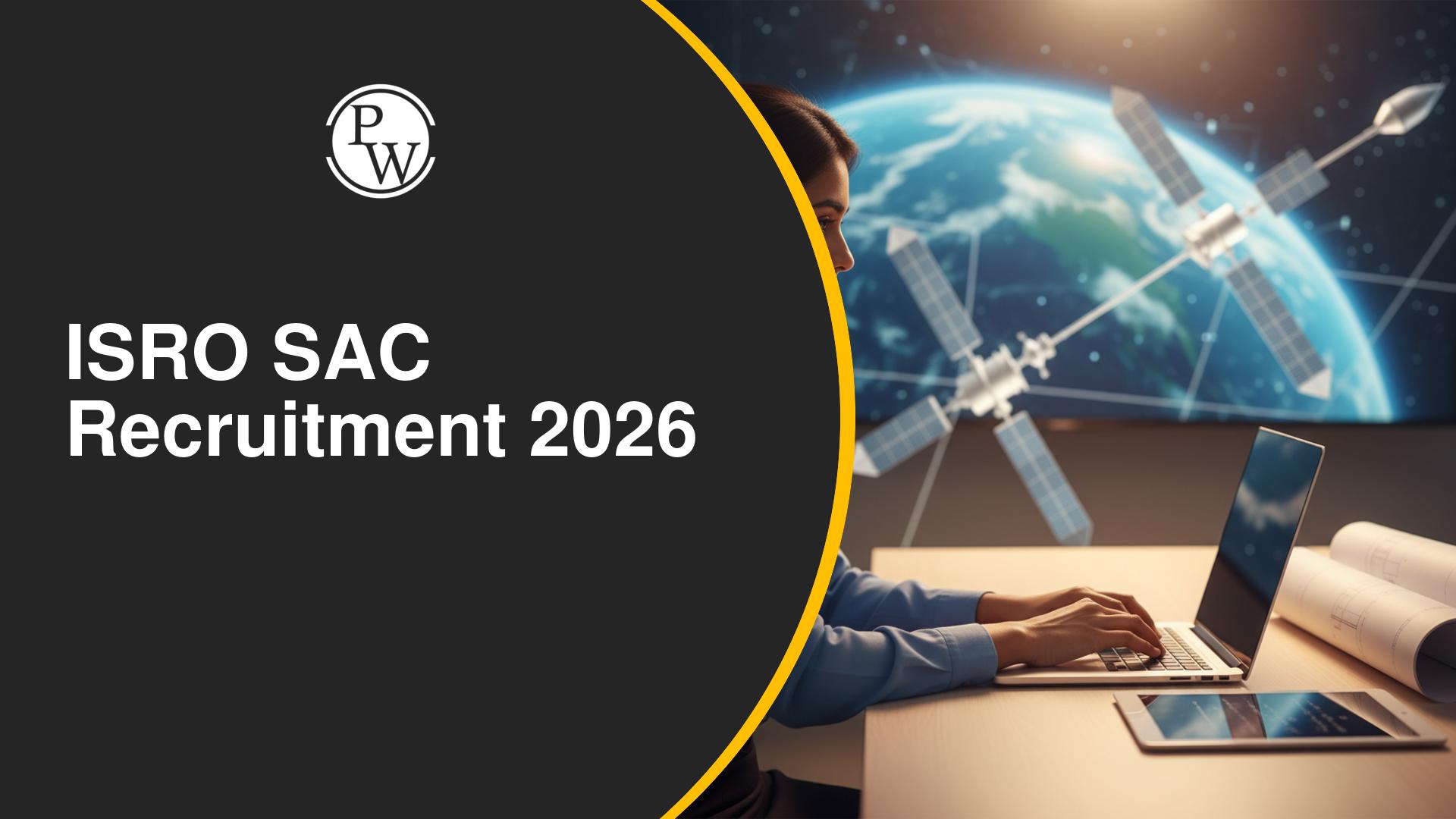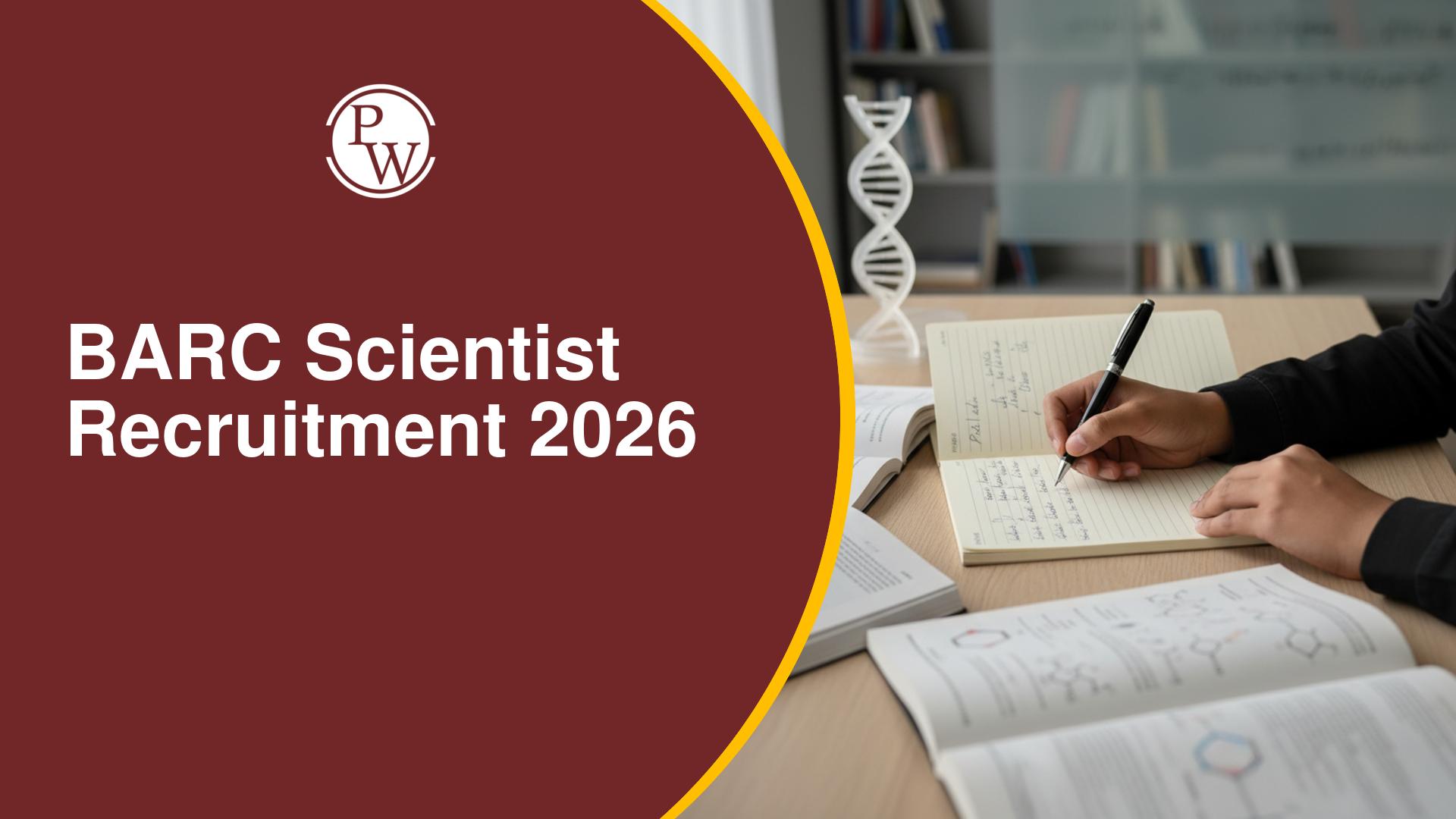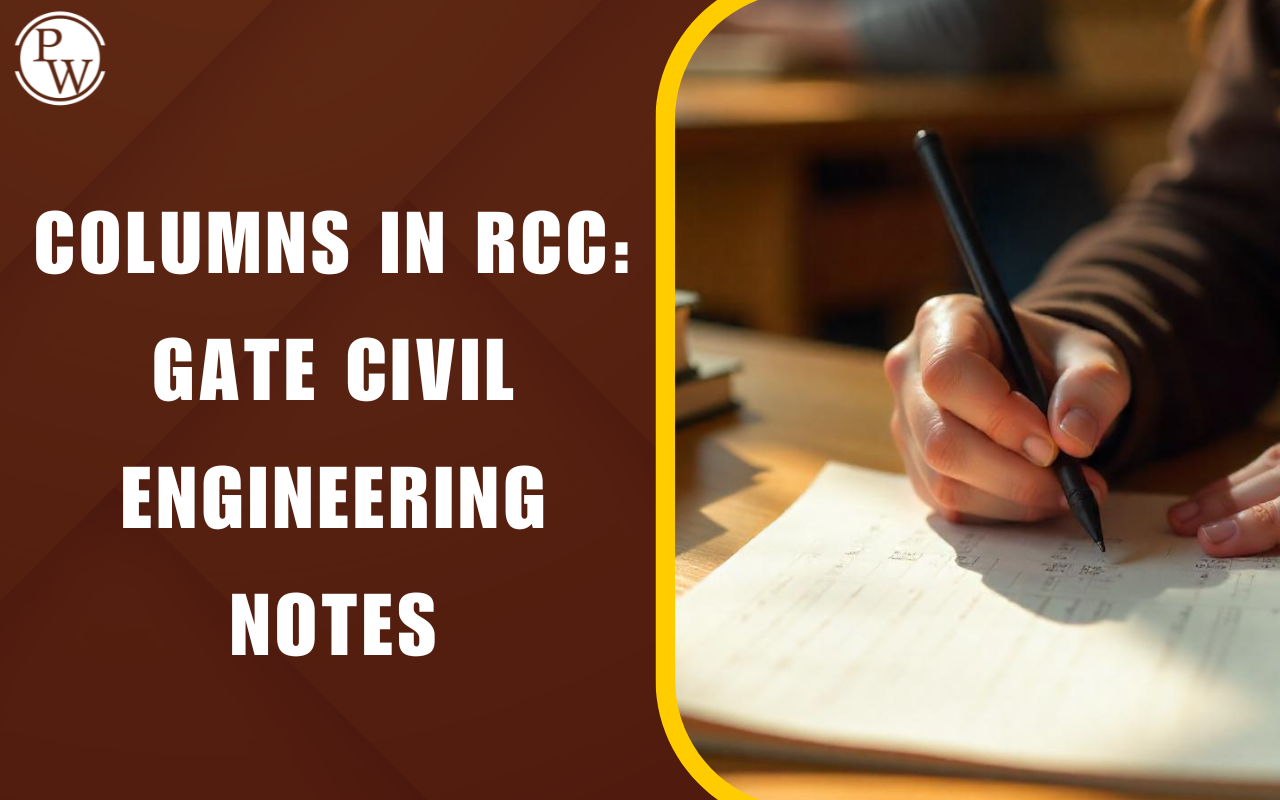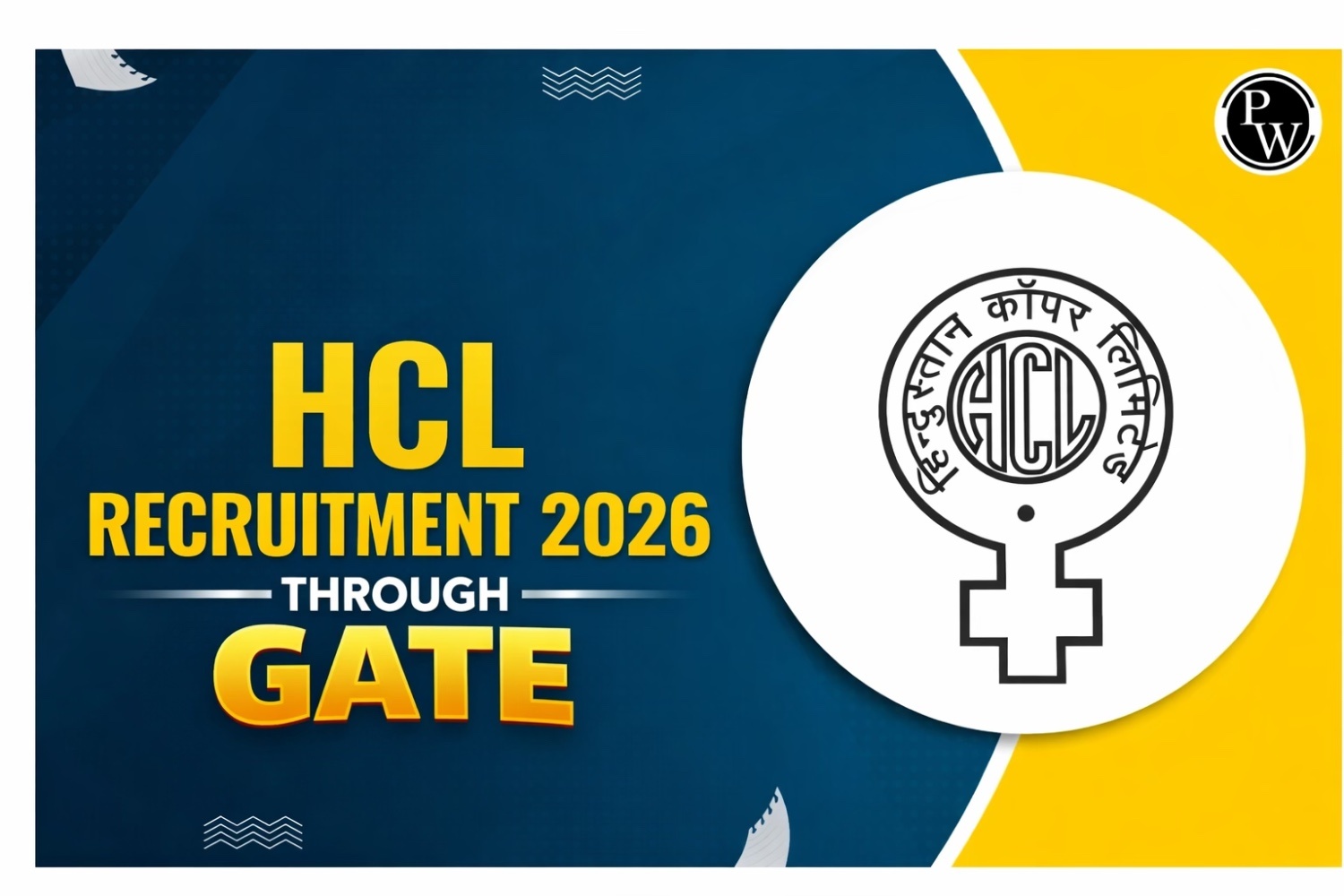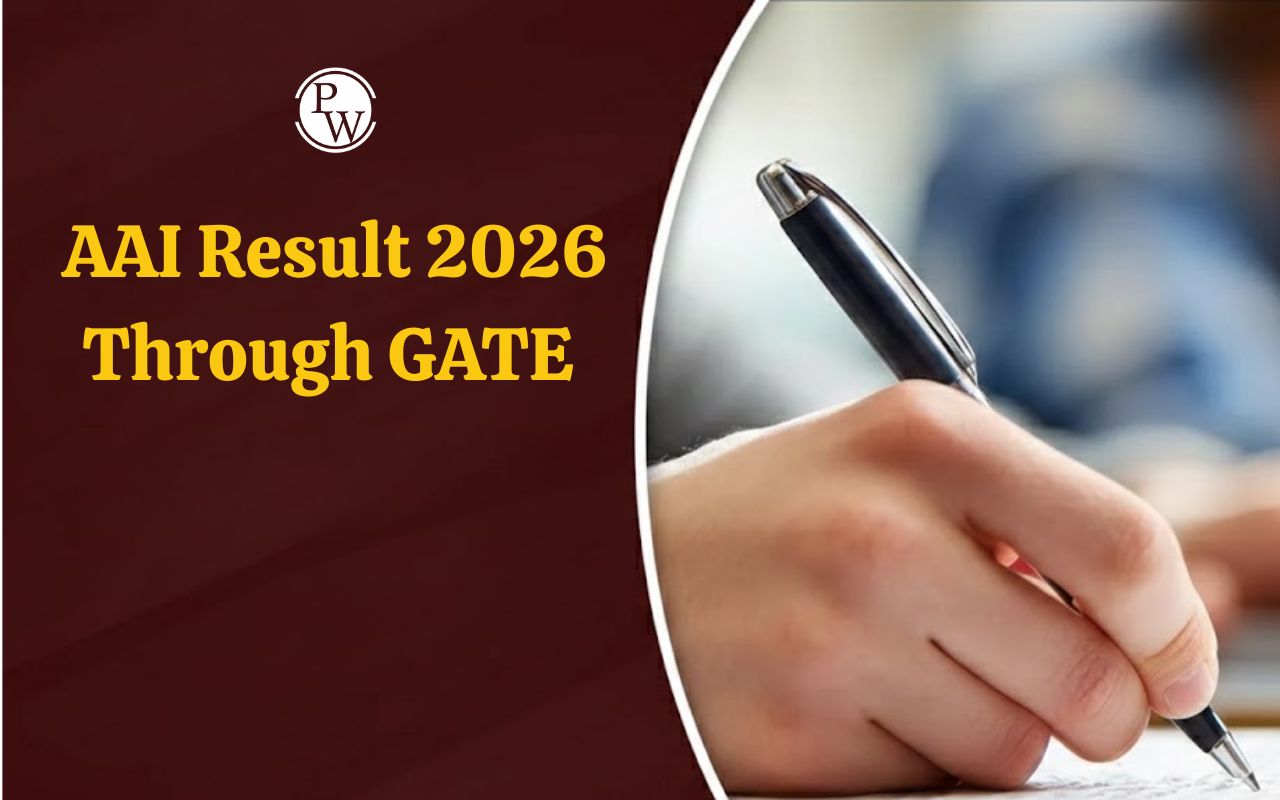
GATE Metallurgical Engineering Syllabus 2026: The Indian Institute of Technology, Guwahati, will administer the GATE 2026 examination across 30 various disciplines including Metallurgical Engineering. Candidates who are willing to appear for this examination must be well acquainted with the GATE Metallurgical Engineering Syllabus 2026 to prepare in a structured manner.
The official GATE Syllabus 2026 for the Metallurgical Engineering paper will be made available at gate.iitg.ac.in with the release of the notification. The GATE MT Syllabus covers a wide range of topics like thermodynamics, mechanical metallurgy, physical metallurgy, and more. Aspirants must go through this article to find the comprehensive GATE MT Syllabus 2026.
GATE Metallurgical Engineering Syllabus 2026
The GATE Metallurgical Engineering Syllabus is designed to assess the technical knowledge of aspirants as well as general aptitude. Cracking the GATE MT exam with a good score requires the structured study plan in accordance with the syllabus. Candidates must focus on covering the in-depth syllabus to maximize their chance of securing the highest score.
The metallurgical engineering syllabus for the Graduate Aptitude Test In Engineering covers an array of topics to ensure that aspirants are thoroughly prepared and capable of tackling challenging questions. Candidates must thoroughly understand the syllabus to align their preparation accordingly.
Sections in GATE Metallurgical Engineering Syllabus
The GATE Metallurgical Engineering Syllabus is divided into eight different sections based on the fundamentals and concepts of the core discipline. The various sections included in the GATE syllabus for Metallurgy are as follows:
- Engineering Mathematics
- Thermodynamics and Rate Processes
- Extractive Metallurgy.
- Physical Metallurgy
- Mechanical Metallurgy
- Manufacturing Processes
- Materials Science
- Instrumentation and Process Control
GATE 2026 Metallurgical Syllabus for Engineering Mathematics
Engineering Mathematics is an important subject that is included in the majority of GATE 2026 papers. It serves the purpose of evaluating the numerical aptitude of aspirants in accordance with their particular disciplines. The GATE 2026 Metallurgy Syllabus includes vital topics from this section, which are outlined below.
| GATE Metallurgy Syllabus for Engineering Mathematics | |
| Topics | Sub-topics |
| Linear Algebra | Matrices and Determinants, Systems of Linear Equations, Eigenvalues, and Eigenvectors |
| Calculus | Limit, Continuity, differentiation, Partial derivatives, Maxima and minima, Sequences and series, Test for convergence, and Fourier series |
| Vector Calculus | Gradient, Divergence, Curl, line, Surface and volume integrals, Stokes, Gauss, and Green’s theorems |
| Differential Equations | Linear and non-linear first-order ODEs, Higher-order linear ODEs with constant coefficients, Cauchy’s and Euler’s equations, Laplace transforms, PDEs –Laplace, one-dimensional heat and wave equations |
| Probability and Statistics | Definitions of probability and sampling theorems, conditional probability, mean, median, mode and standard deviation, Random variables, Poisson, normal and binomial distributions, Analysis of experimental data, and Linear least-squares method |
| Numerical Methods | Solutions of linear and non-linear algebraic equations, Integration by trapezoidal and Simpson’s rules Single and multi-step methods for differential equations |
GATE 2026 Syllabus for Metallurgical Thermodynamics
The Thermodynamics section of the GATE 2026 syllabus for Metallurgical Engineering covers topics from the laws of thermodynamics and electrochemistry. Check out the complete list of topics in the table below:
| GATE Metallurgical Syllabus for Thermodynamics | |
| Topics | Sub-topics |
| The laws of thermodynamics |
|
| Electrochemistry | Single electrode potential, Electrochemical cells, Nernst equation, Potential-pH diagrams |
GATE 2026 Metallurgical Syllabus for Transport Phenomena & Rate Processes
The GATE Metallurgy Syllabus 2026 for the Transport Phenomena and Rate Processes section typically covers main topics like heat transfer, radiation, mass transfer, and momentum transfer, among others explained below.
| GATE Metallurgy Syllabus for Transport Phenomena and Rate Processes | |
| Topics | Sub-topics |
| Momentum transfer | Concept of viscosity, Shell balances, Bernoulli’s equation, Mechanical energy balance equation, Flow past plane surfaces and through pipes |
| Heat transfer | Conduction, Fourier’s Law, 1-D steady-state conduction |
| Convection | Heat transfer coefficient relations for forced convection |
| Radiation | Black body radiation, Stefan-Boltzmann Law, Kirchhoff’s Law |
| Mass transfer | Diffusion, Fick’s laws, Mass transfer coefficients |
| Dimensional analysis | Buckingham Pi theorem, Significance of dimensionless numbers |
| Basic laws of chemical kinetics | First-order reactions, Reaction rate constant, Arrhenius relation, Heterogeneous reactions, Oxidation kinetics |
| Electrochemical kinetics | Polarization |
GATE 2026 Metallurgical Syllabus for Mineral Processing & Extractive Metallurgy
The Mineral Processing & Extractive Metallurgy section of the GATE 2026 Metallurgical Syllabus covers a wide range of topics such as ironmaking, oxidation processes, and inclusion control, among others.
| GATE Metallurgical Syllabus for Mineral Processing and Extractive Metallurgy | |
| Topics | Sub-topics |
| Comminution Techniques | Size classification, Flotation, Gravity, and other methods of mineral beneficiation |
| Agglomeration | Sintering, pelletizing, and briquetting |
| Material and Energy balances | Principles and processes for the extraction of non-ferrous metals (aluminum, copper, and titanium) |
| Iron and steel-making | Material and heat balance in blast furnace |
| Structure and properties of slags and molten salts – basicity of slags; sulfide and phosphate capacity of slags | |
| Production of metallurgical coke and other methods of ironmaking (COREX, MIDRE) | |
| Primary steelmaking | Basic oxygen furnace, process dynamics, oxidation reactions, electric arc furnace |
| Secondary steelmaking | Ladle process- deoxidation, argon stirring, desulfurization, inclusion shape control, principles of degassing methods; basics of stainless steel manufacturing |
| Continuous Casting | Fluid flow in the tundish and mold, heat transfer in the mold, segregation, and inclusion control |
GATE 2026 Metallurgical Syllabus for Physical Metallurgy
The Physical Metallurgy part of the GATE Metallurgical Syllabus 2026 covers an array of topics essential to understanding material behavior at the atomic and microstructural levels. These topics are important in the discipline of metallurgy because they provide information about the properties, structure, and transformation of materials.
| GATE 2026 Metallurgical Syllabus for Physical Metallurgy | |
| Topics | Sub-topics |
| Chemical Bonding | Ionic, covalent, metallic, and secondary bonding in materials; Crystal structure of solids - metals and alloys, ionic and covalent solids, and polymers |
| X-ray Diffraction | Bragg's law, optical metallography, and the principles of SEM imaging |
| Diffusion in solids | Diffusion equation, steady-state and error function solutions, Kirkendall effect, Uphill diffusion, Atomic models for interstitial and substitutional diffusion, Pipe diffusion and grain boundary diffusion |
| Crystal Imperfections | Point, line, and surface defects; Coherent, semi-coherent, and incoherent interfaces |
| Phase transformation | Driving force, Homogeneous and heterogeneous nucleation and growth kinetics |
| Electronic | Electronic, magnetic, and optical properties of materials |
| Solid-state transformations | Precipitation, spinodal decomposition, ordering, massive transformation, discontinuous precipitation, eutectoid transformation, diffusion less transformations, Precipitate coarsening, and Gibbs-Thomson effect |
| Basic forms of corrosion | Basic forms of corrosion and its prevention |
GATE 2026 Metallurgical Engineering Syllabus for Mechanical Metallurgy
In the GATE Metallurgical Engineering syllabus 2026, the Mechanical Metallurgy section highlights the mechanical characteristics and behavior of materials.
It covers a wide range of subjects that are necessary for understanding how materials react to outside forces and deform or fail.
| GATE Metallurgy Syllabus for Mechanical Metallurgy | |
| Topics | Sub-topics |
| Stress-Strain | Strain tensor and stress tensor, Representation by Mohr’s circle, elasticity, stiffness and compliance tensor, Yield criteria, Plastic deformation by slip and twinning |
| Dislocation theory | Edge, screw and mixed dislocations, source and multiplication of dislocations, stress fields around dislocations; Partial dislocations, dislocation interactions |
| Strengthening mechanisms | Work/strain hardening, strengthening due to grain boundaries, solid solution, precipitation and dispersion |
| Fracture behavior | Griffith's theory, linear elastic fracture mechanics, fracture toughness, fractography, ductile to brittle transition |
| Fatigue | Cyclic stress-strain behavior - low and high cycle fatigue, crack growth |
| High-temperature deformation and failure | Mechanisms of high-temperature deformation and failure |
| Creep and stress rupture | Creep and stress rupture, stress exponent and activation energy |
GATE 2026 Metallurgical Engineering Syllabus for Manufacturing Process
The GATE Metallurgical Engineering syllabus 2026 for Manufacturing Process emphasizes numerous facts of material processing and fabrication.
It covers an array of topics that are vital for understanding the procedures and ideas involved in the manufacturing of metallic components.
| GATE 2026 Metallurgical Syllabus for Manufacturing Process | |
| Topics | Sub-topics |
| Metal casting | Mould design involving feeding, gating, rising, casting practices, and casting defects |
| Hot, warm, and cold working of metals | Fundamentals of metal forming processes such as rolling, forging, extrusion, wire drawing, and sheet metal forming; defects in forming processes |
| Metal joining | Principles of soldering, brazing, and welding; welding metallurgy; defects in welded joints in steels and aluminum alloys |
| Powder metallurgy | Production of powders, compaction, and sintering |
| Non-destructive Testing (NDT) | Dye-penetrant, ultrasonic, radiography, eddy current, acoustic emission, and magnetic particle inspection methods |
GATE Metallurgical Engineering Syllabus 2026 PDF
The GATE 2026 Metallurgical Engineering Syllabus PDF will be made public on the official website at gate.iitg.ac.in. Aspirants who are going to appear for GATE MT exam in 2026 must go through the previous year's syllabus PDF attached here to know the topic-wise coverage of the curriculum. Candidates are advised to thoroughly review the entire syllabus to start the effective preparation.
GATE MT Syllabus 2026 - Subject Wise Weightage
The GATE 2026 Metallurgical Engineering Subject Wise Weightage provides useful information about the topics that carry high marks in the exam. By analyzing this weightage, aspirants can strategically allocate their time and focus on the important subjects to score well in the GATE 2026 examination.
The table below highlights the GATE Metallurgy subject-wise weightage, which has been prepared by analyzing the details of previous years' Metallurgy exams.
| GATE Metallurgical Engineering Subject Wise Weightage | ||
| Subject | Important Topics | Weightage (tentative) |
| Engineering Mathematics | Linear, algebra, probability, statics, and calculus | 15% |
| General Aptitude | Sentence correction, number system, data interpretation, and verbal and critical reasoning | 15% |
| Metallurgical Thermodynamics | Laws of thermodynamics, and electrochemistry | 10% |
| Transport Phenomena and Rate Processes | Convection, heat transfer, momentum transfer, mass transfer, and chemical kinetics and laws | 10% |
| Mineral Processing and Extractive Metallurgy | Iron and steel making, continuous casting, primary and secondary steel making | 5% |
| Mechanical Metallurgy | Fatigue and dislocation theory | 15% |
| Manufacturing Processes | NDT, metal casting and joining | 10% |
| Physical Metallurgy | Solid diffusion, solid-state transformation, and chemical bonding | 20% |
Ace your GATE preparation with Physics Wallah’s GATE Online Courses . PW GATE Online Coaching offers comprehensive live sessions tailored to the syllabus, invaluable study materials, practice tests, and much more.
GATE Metallurgical Engineering Syllabus 2026 FAQs
Q. Can I cover GATE Metallurgical Engineering syllabus 2026 in 6 months?
Q. What is the weightage of Metallurgical Thermodynamics in the GATE Metallurgical paper?
Q. Does the GATE Metallurgical Engineering Syllabus 2026 include engineering mathematics?
Q. How to download the GATE Syllabus for Metallurgical Engineering PDF?
Q. What are the key topics covered under GATE Metallurgical Engineering Syllabus?


